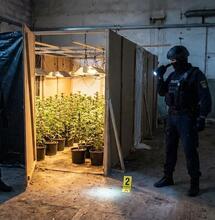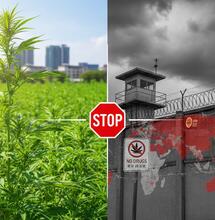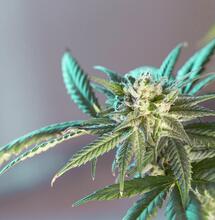Cannabis Legalization vs. International Drug Treaties

An increasing number of jurisdictions in the U.S. and abroad have stepped forward with adult-use marijuana legalization. This begs the question whether legalizing cannabis for recreational use violates international drug treaties. In the view of the United Nation’s International Narcotics Control Board (INCB), adult-use legalization is indeed in breach with international arrangements. The INCB has routinely criticized cannabis reform over the years.
Hemp and CBD are generally accepted in terms of international treaties and conventions, but the same cannot be said for the free recreational use of cannabis.
Under the Single Convention on Narcotics Drugs of 1961, cannabis is defined as “the flowering or fruiting tops of the cannabis plant” and it does not consider certain parts such as Cannabis sativa seeds or leaves as controlled substances. Therefore, as long as the ‘approved’ parts of the plant are not accompanied by the ‘unapproved’ ones, there’s no ‘wrongdoing’ in using and manufacturing cannabis-based products.
That could help explain why for example CBD cosmetics are in the domain of acceptable international use and there has been a big industry around it even in countries with the most strict of cannabis laws, like Japan for instance.
That the recreational use of cannabis has violated the Single Conventions of Narcotics Drugs of 1961 is something that the UN drugs control body has pointed out on more than one occasion.
Does Legalizing Cannabis for Recreational Use Violate Other International Drug Treaties?
The UN’s anti-narcotic chefs have objected to cannabis reform ever since Oregon, Alaska and Washington D.C. legalized recreational use of marijuana through ballot measures in 2014, and with that boosting the legalization movement. Representatives of the INCB have repeatedly said over the years that cannabis legalization is out of line with international agreements, underscoring that the U.S. is party to three international drug treaties.
The same UN body reiterated its position in its 2023 report where it indirectly suggested that the United States is out of compliance with the international drug treaty from 1961. That time it cited a reason: the federal government was not compliant because it passively permitted states to enact adult-use marijuana legalization. The body further disapproved recreational use legalization in a more general statement.
The UN agency reaffirmed its position on legal recreational cannabis as a breach of international treaties once again this year. The reason this time was that the U.S. has continued to inch closer to marijuana reform and Germany has also entered the game. Though, in the case of Germany, the drugs control agency acknowledged the effort of the German government to water down its initial legalization plan.
The INCB communicates its positions on legalization development usually through its annual reports. The report for 2023 was released in March this year.
“The Board continues to reiterate its concern regarding the legalization of the use of cannabis for non-medical and non-scientific purposes in several jurisdictions, with other jurisdictions considering similar action,” the UN agency said in its latest report.
The drugs control agency has emphasized that member nations are required to take all necessary “legislative and administrative measures” to address and punish “the production, manufacture, export, import, distribution of, trade in, use and possession of drugs” such as marijuana under established treaties.
There are three international drug treaties which the UN body believes might be breached when a certain jurisdiction decides to legalize cannabis for recreational use.
Those three conventions are as follows:
- Single Convention on Narcotics Drugs of 1961
- Convention of Psychotropic Substances 1971
- United Nations Convention Against Illicit Traffic in Narcotic Drugs and Psychotropic Substances of 1988
The main goal of the 1961 convention is to limit the possession, use, distribution, commerce and production of drugs exclusively for medicinal and scientific purposes, among other things, and this is often the most cited argument against recreational legalization of cannabis.
The psychotropics convention from 1971 is supposed to respond to the diversification and extension of the spectrum of drugs of abuse, as well as it seeks to exercise control over synthetic drugs based on their potential for abuse on the one end and therapeutic benefit on the other.
And the most recent convention, the one from 1988, is a comprehensive measure against drug trafficking, money laundering and deflection of precursor chemicals. This treaty also provides for international cooperation in the battle against organized drug trafficking.
International Drug Treaties Provide for Flexibility on Cannabis Laws
Even though all three treaties were enacted in the previous century, and it might look that they are perhaps outmoded, they still leave space for member states to adapt their specific national legislation on drugs accordingly. That flexibility includes the option to end prohibition if needed.
In the most recent of developments, the U.S. is on its way to move cannabis under Schedule III of the Controlled Substances Act. Some of the legal opinions on the matter suggest that with this move the U.S. would be more aligned with its international obligations, such as those signed with the three international treaties from 1961, 1971 and 1988. Rescheduling could potentially help the federal government to regulate cannabis in a manner that protects public safety and health, which is the number one requirement by international law.
Cannabis legal experts with the law firms Porter Wright LLP and Vicente LLP elaborated recently on the matter in an op-ed greatly intended to disprove a position of DEA from 2016 where the agency denied an earlier cannabis rescheduling petition with its representatives having said that “in view of United States obligated under international drug control treaties, marijuana cannot be placed in a schedule less restrictive than schedule II.”
The legal specialists argue that the current configuration of the international drug treaties is flexible enough to permit independent countries to make drug policies as they deem fit.
“The Treaties provide its signatory members with the flexibility to evaluate the scheduling of substances under their respective domestic laws based on the emergence of new scientific and medical evidence,” the law firms’ 11-pager said, as reported by Marijuana Moment. “This flexibility in the Treaties is a core component of their application and vital to their continued relevance.”
This legal opinion was reportedly commissioned by the Coalition for Cannabis Scheduling Reform, which represents a larger group of industry operators and cannabis advocacy organizations.
In the end, aligning with international obligations might not be the greatest challenge of all. The right solution on how to regulate cannabis in a legal fashion will be found. The real ‘enemy’ is much closer to home. Now that the rescheduling of marijuana has advanced in the United States, there will be various efforts to undermine that small victory. And those would be some of the real sources for worry.
Also read on Soft Secrets:
- United Nations Criticizes Cannabis Reform














